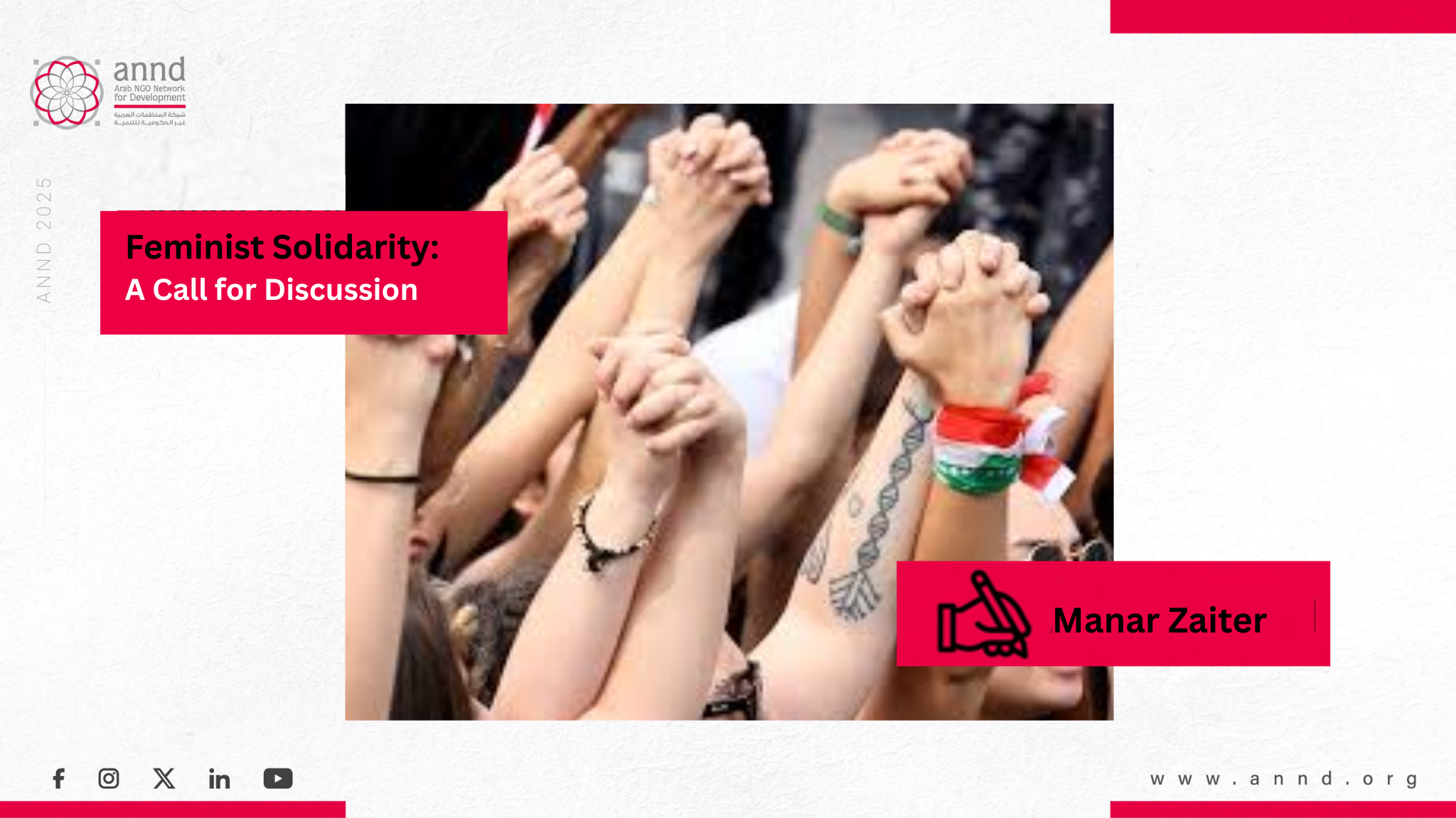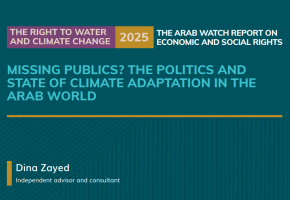

Feminist Solidarity: A Call for Discussion - Manar Zaiter
In recent times, we have witnessed multiple and divergent stances on various issues, which have raised—and continue to raise—a set of questions about the meaning of feminist solidarity and its forms.
What is the correct political form of solidarity? What is meant by “feminist solidarity” in the Lebanese context? Is it merely “we are all women”? Does this solidarity acknowledge differences (race, nationality, class, religion, political opinion…), or is one expected “to be like us” to be included? Are there mechanisms and platforms for building solidarity, or is it limited to a statement or an annual celebration? What is the relationship between the “achievements” that are celebrated and solidarity? Does celebrating individual achievements bolster collective solidarity, or does it serve only some women while leaving others behind the scenes?
And when we celebrate the Lebanese woman, do we acknowledge non-Lebanese women residing in Lebanon? And does expressing reservations about such celebrations destroy solidarity?
The importance of these questions grows in light of what has happened and is happening in Gaza, and the renewed debate about the concept of “solidarity” in the region and the world. Globally, we have seen varying positions among feminists—some remained neutral, others adopted the Israeli narrative, while others viewed Israel’s actions against the Palestinian people as a political, feminist, and moral issue simultaneously. These positions reopen the discussion of the meaning of solidarity. Is it merely a moral stance, or is it a political practice that dismantles the systems that oppress and enable the oppression of Palestinians and all marginalized women around the world?
These questions do not overlook the complexities and challenges facing feminist movements, nor the historical contexts that shaped the concept of feminist solidarity—one that has long been contested at the levels of concept, approach, and mechanisms. They also do not imply a rejection of difference. Diversity is essential and enables the building of strong alliances. Solidarity does not reject difference, nor is it a melting into a single experience; it is an ongoing act of listening, interacting, accountability, and openness to everyone’s struggles, and intersecting with various causes.
Recently, these questions have grown more pressing due to the existential transformations taking place in our countries and around the world, and the deep divisions affecting fundamental and problematic issues. These transformations collectively present the need to reopen the discussion of the concept of “solidarity,” and to critically reflect on its meanings, mechanisms, and usefulness. From this standpoint, there are issues that call for discussion—not as an invitation to adopt a specific vision, but to open a critical dialogue about the meanings of “solidarity.” Among these issues:
First: The term solidarity may sometimes be used to express good intentions that conceal political impotence or hypocrisy, and it may be merely temporary support or an emotional stance. Hence the need to redefine it as a practice that goes beyond slogans toward building real bonds capable of creating change. It is not a slogan to be raised, but a critical practice embodied in collective action, ethical commitment, and the ability to work across cultural, social, political, and economic differences, and to transcend them in a way that reflects core values, while preserving each group’s identity and autonomy. Therefore, there is a need to reclaim, update, discuss, and deconstruct the discourses that have turned this concept into something cosmetic.
Second: Another dimension of solidarity emerges through the structural issues within feminist work itself. There is a dual problem facing this work, manifested in its relationship with donors and in the internal structures and approaches of feminist institutions. While the reasons behind this are numerous and cannot all be explored here, it is always useful to recall the major historical shifts that contributed to weakening inquiry into the concept of solidarity. Among these shifts are the policies that redrew the boundaries of feminist work, whereby civil society organizations became the primary actors organizing women. Despite the importance of the roles played by these actors, the institutionalization of feminist work directed feminist discourse toward liberal equality concepts, away from addressing the structures and systems that produce discrimination. As a result, the focus shifted from critiquing economic, political, and cultural structures to self-empowerment approaches, which stripped feminist work of much of its collective, solidaristic, and holistic character. These shifts were reflected in the nature of feminist alliances, which faced real difficulties in forming and sustaining themselves due to many factors—including, primarily, differing political positions toward these structures and the mechanisms of engaging with them, in addition to weak agreement on considering solidarity as one of the strategies and tools of action.
Third: Solidarity is often treated as a stance against violence or a call for the political and economic empowerment of women, rather than as a commitment to fundamental values such as freedom, justice, and self-determination for all. In light of what is happening today, the question arises: Is solidarity still a test of these values and a measure of the feminist movements’ ability to transform their principles into political action within a non-selective vision?
I recognize that the achievements of feminist movements did not emerge from a vacuum but were the result of collective struggle and ongoing social mobilization. Therefore, these questions come as an invitation to reflect on how to build alliances that transcend residues, identities, doctrines, affiliations, and political positions. This commitment can only be achieved through self-critique and dialogue regarding feminist concepts and values. Before that, we must answer whether solidarity is still a central concept in feminist work. The answer will help us frame a new concept—one that is neither prepackaged nor one-dimensional, yet not cosmetic either.
The answer is not easy, but thinking about it is necessary.
Recent publications

